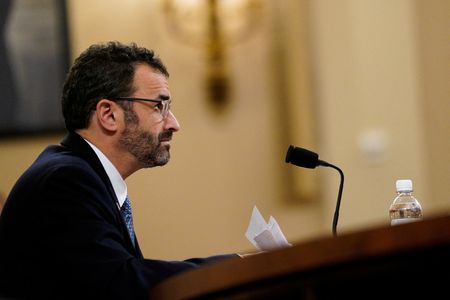By David Lawder
WASHINGTON (Reuters) – U.S. Internal Revenue Service Commissioner Danny Werfel said on Friday that a Republican plan to cut the agency’s annual budget would reduce its ability to ramp up tax collections on millionaires like it has done in recent months.
Republicans on the U.S. House of Representatives Appropriations Committee have proposed cutting the IRS’ fiscal 2024 budget below this year’s $12.3 billion level, forcing it to use more of the $80 billion in mandatory funding it received last year to fund operations.
Those funds, part of Democrats’ climate-focused Inflation Reduction Act, were meant to beef up enforcement, modernize systems and improve customer service over the next decade.
“I know that as we enter upcoming budget negotiations there’s an interest in scaling back IRS resources. I hope that we can make the case to Congress and the American people that we are putting our resources to work for them,” Werfel told reporters on a conference call.
“And scaling back means less accountability for the wealthy who … aren’t paying, and less of an ability to help taxpayers navigate our ever increasingly complicated tax code,” he added.
Werfel said the IRS has been making progress with its initial investments in enforcement from the $80 billion in recent months, closing 175 cases of tax payment delinquencies among millionaires that have generated $38 million in additional revenue.
The IRS also is pursuing about 100 high-income Americans falsely claiming residency in Puerto Rico, where residents are generally exempt from federal income taxes. He said many of these cases are expected to proceed to criminal investigations.
The IRS said it also begun cracking down on millionaires who simply don’t file income tax returns but spend lavishly, with one individual buying Maserati and Bentley luxury cars instead of paying taxes.
The agency added that it is using its new resources to help detect individuals using unlawful tactics to move assets offshore, including to Maltese personal retirement schemes, to hide income.
A deal between congressional Republicans and the Biden administration this spring to raise the debt ceiling immediately rescinded $1.4 billion of the $80 billion in new IRS funding, while another $20 billion will be redirected to other domestic spending over the next two fiscal years.
(Reporting by David Lawder; Editing by Paul Simao)





